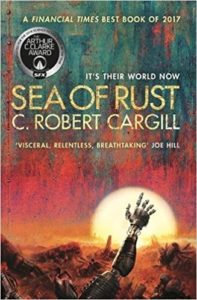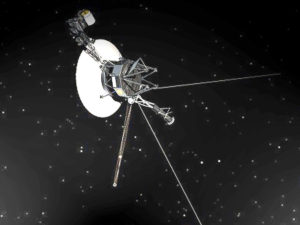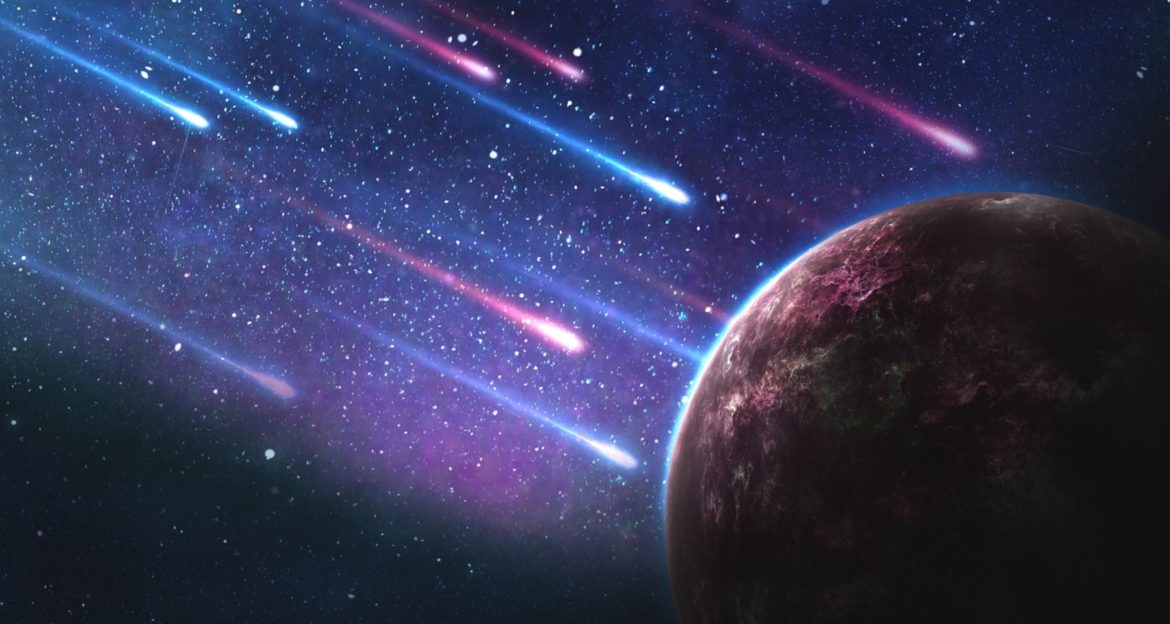
Sea of Rust by C. Robert Cargill (Gollancz)
Wiped out in a global uprising by the very machines made to serve them. Now the world is controlled by OWIs — vast mainframes that have assimilated the minds of millions of robots.
But not all robots are willing to cede their individuality, and Brittle is one of the holdouts.
After a near-deadly encounter with another AI, Brittle is forced to seek sanctuary in a city under siege by an OWI. Critically damaged, Brittle must evade capture long enough to find the essential rare parts to make repairs — but as a robot’s CPU gradually deteriorates, all their old memories resurface.
For Brittle, that means one haunting memory in particular . . .
It has been short-listed for the 2018 Arthur C. Clarke award. A selection of our panel of shadow jurors respond to the novel below…
Gary K. Wolfe
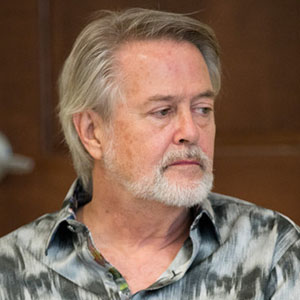
For me, this is the most surprising title to find on the Clarke shortlist, since it’s the most derivative and frankly old-fashioned of the finalists. I had seen a few quite favorable reviews when it appeared, but never got a review copy myself, so this was my first encounter with it. Those reviews promised, foremost, a fast-moving violent action thriller, and Cargill delivers well enough on that score—the novel seems to owe a good deal more to Sergio Leone and James Cameron than to Asimov or Simak—but they also promised provocative philosophical asides and astonishing worldbuilding, and most of what I found were stale muffins. Cargill’s premise is to look at the now-clichéd robot apocalypse from the point of view of surviving robots some years after the last human has died, and to construct a spaghetti Western in which battling bots wander through the wasteland of the title, seeking spare parts and trying to avoid being absorbed into the global consciousness represented by competing Forbin Project-style supercomputers, called OWI (for One World Intelligence, though I kept wanting to pronounce it “owie!”) who have set out to rule the world. The narrator is Brittle, a former caretaker robot whose loyalty to her dead owners is such that she retains a feminine pronoun for no apparent reason. Her main rival—they apparently need each other’s parts to survive—is a male robot named Mercer, who is given to lines of dialogue like “‘This is how this is gonna go down,'” and “‘I shot you. You’re up shit creek.'”
There is a longstanding subgenre of posthumanity robot tales dating all the way back to Čapek (at least the epilogue of R.U.R.) and including tales from the 1930s (such as Robert Moore Williams’s “Robot’s Return”) through Simak’s City and later classics like Aldiss’s “Who Can Replace a Man?” and Zelazny’s “For a Breath I Tarry.” I mention these (along with D.F. Jones’s Colossus, the source text of The Forbin Project) because they repeatedly came to mind while reading Sea of Rust, and because those vaunted philosophical nuggets—what is free will? How much of you can you replace and still be you? What is the purpose of robot life when the makers are gone?—were handled with at least as much grace and thoughtfulness in works like these decades ago. For that matter, the idea of the robot itself has undergone decades of fictional evolution, little of which is in evidence here. At one point, Brittle recalls arguing with her human companion over who will do the dishes—but even in the 1930s, SF writers realized that a robot standing over a sink doing dishes seemed pretty pointless, given that dishwashing machines were already coming on the market.
And that leads to the other problem that fractures the credibility of Sea of Rust: the technology, which for the most part might well have been imagined in the 1970s: giant mainframes taking up entire hundred-story buildings, robots that still communicate by talking in human speech, etc., and talking about their Wi-Fi, memory sticks, and hard drives. If there was a hint of quantum computing, neural networks, or even cloud computing, I must have missed it. And much the same is true of the philosophical questions which seem to have enamored some reviewers; the debate over whether evolved machine intelligence is better suited to life in the universe than comparatively sloppy biological evolution not only isn’t new; it’s been the subject of Gregory Benford’s whole series of Galactic Center novels, among many others.
Which leaves us with mainly two things to enjoy. One is the grim, lifeless wasteland called the Sea of Rust. It turns out that the robot-human wars left the Earth a virtually lifeless ruin, which on the one hand is a truly grim vision of apocalypse and on the other is stripped-down adventure landscape that reminded me more of Road Runner cartoons than of, say, movies like Mad Max or Wall-E, with which it also shares some DNA. The most disturbing such landscape I can recall in recent SF is Paolo Bacigalupi’s “The People of Sand and Slag,” a story which achieved a far more disturbing sense of loss. And in this fractured landscape we meet all sorts of robots—the good, the bad, and the ugly—shooting it out with CGI-ready plasma weapons and Clint Eastwood dialogue. That part, the sheer kinetic adventure, is undeniably fun, but it has very little to do with the novel’s SF content—which is why it surprised me a bit to see this on the Clarke Award list. Clarke, for all his limitations when it came to style and character, always wanted to move SF speculation beyond the familiar, to think of new questions or new ways of asking old ones, and I don’t see how Sea of Rust does that.
Nick Hubble
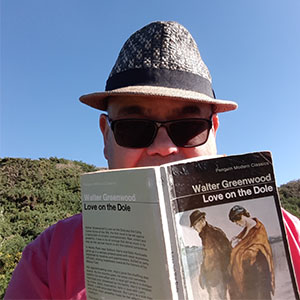
Ok, it would be patronising to suggest that it is an unofficial tradition of the Clarke Award occasionally to include crowd-pleasing solid-genre page turners on the short list. There is a genuine debate about the value of genre and as I wrote recently about Ian Macdonald’s Luna: Wolf Moon, I’m very much in favour of reading core genre as part of a diverse approach to the SF field. Nevertheless, I think it takes something fairly special (more than just adorable talking spiders) for a work like Adrian Tchaikovsky’s Children of Time to win the award. More frequently, the role of the genre novel is to perform the role of the ‘straight man’, so to speak, against which the exceptional in terms of speculation or literary experimentation stands out.
I can’t imagine that anybody seriously considers Sea of Rust as a potential winner of this year’s award. I assume it is on the list because enough jury members enjoyed it. As a work that is unashamedly fast-paced, fun and not an insult to the intelligence, I can see how it might come as a something of a relief after struggling through some of the literary texts on the submission list which strain for significance but fall short. It is undoubtedly good of its kind and I must confess that, addicted to cake as I am, I enjoyed it and wolfed it down pretty quickly. However (… and you knew this ‘however’ was coming), it is really not of the calibre of the kind of genre novels that have made it onto the short list in the past because clearly some or all of the judges thought they were good enough that people would really enjoy them. I’m thinking of something like M.R. Carey’s The Girl with All the Gifts which was unlikely to win in 2015 but nonetheless a book which deserved to be brought to wider attention. Or even Chris Wooding’s Retribution Falls, which could be welcomed back in the now impossibly distant past of 2010 as a return to good old-fashioned space adventure.
Sea of Rust is just not in that category. Apart from anything else, the dialogue is consistently hackneyed. It is the equivalent of that made for TV film in the early hours that you keep watching because the plot and the action scenes are sufficiently compelling to keep you awake despite its other flaws. For some, it may even attain cult B movie status. So, yes, in that respect it is better than ninety-nine per cent of its peers and you’ll probably watch it all the way through again the next time you are slumped down on the sofa as well, but it’s never going to be The Terminator, let alone Blade Runner. Wait a minute, I hear you complain, they haven’t discussed the plot and the main character. No, I haven’t because if I did there would be nothing left: the premise is the pleasure in the case of Sea of Rust. Explaining it would kill it. By all means, read it and enjoy it but don’t expect it to win.
Alasdair Stuart

Years after the machines won the war with humanity and wiped them out, things are not going well. Even robots age, and spare parts are at a premium, especially for some models. Brittle is one of them, keeping herself going by tracking down dying bots and scavenging from them. Britt does just enough to convince herself that she isn’t the villain. But when she and arch-rival Mercer badly injure each other, they both need the same parts. And the One World Intelligence, CISSUS, has plans for them and all their friends…
C. Robert Cargill is best known for his screenwriting work. He’s a frequent collaborator with director Scott Derrickson and co-wrote Doctor Strange and both Sinister movies. The Sinister films are an early example of the sort of cheerfully nasty, inventive micro-budget movies that would turn Western horror cinema on its head. But this isn’t that particular conversation.
Sea of Rust isn’t Cargill’s first novel but is his first science fiction novel. It’s also far and away the most cinematic of the novels of Cargill’s I’ve read, wearing its influences on its tattered, artfully shot sleeve. Stylistically and visually this is science fiction shot through with the visual sensibilities of everyone from George Miller and John Cassavetes to Saving Private Ryan-era Spielberg. All of that in turn is presented in the exact sort of straight ahead, at times suspiciously low budget manner that late ‘80s/early ‘90s companies like Full Moon Productions made famous. This is pedal to the metal action science fiction that seems, to me, to draw its inspirations from the movies that in turn seem to have influenced Cargill’s previous work as both film journalist and film writer.
A lot of this, especially in the first half of the novel, is hard ground. Brittle is a deeply cynical lead who has convinced herself human life means nothing and her war with Mercer is two cowboy hats and an Italian film set away from being a riff so loud you can barely hear yourself read. Like those ‘80s and ‘90s action movies I mentioned life here is nasty, brutish and creatively short. People die, a lot. The action is fast and balletic and unpleasant.
This all culminates in Brittle, Mercer and their ragtag fugitive fleet making their way towards the only possible shelter even as Brittle and Mercer both continue their feud and rapidly begin to die. There’s some fun stuff here with a group of robots that have been forced to fall back on petrol engines and a nicely realised growing friendship between the two rivals. The central concept of the novel, that two identical bots can have a different experience in the same situation, is embodied in these two and the ground Cargill finds here is the strongest in the novel. There’s intimacy there and a surprising, evolving relationship I honestly wish had been given more room.
Because while this section owes far less to Ayn Rand than it does to Charles Band, it’s still more than a little ponderous. The exuberant nihilism of those movies eventually falls away as we realise Brittle has never stopped feeling for the first human she killed and everything presented in the first half is the lies she tells herself. That’s well handled as is the surprising history of the war, but we don’t get enough of it. Instead, Team Brittle make their slow, inexorable way in a straight line towards, mostly, what they were always aiming at. The action is still fast and well handled but it also starts to get harder to hold on to. This is a novel that lives in the characters not what’s happening to them and the balance shifts too often in the other direction.
It also doesn’t serve any of the main ideas as well as it could. The Western stylings play as cute, without self-awareness on the part of the characters, in a way they shouldn’t. The genuinely fascinating main plot concerning the OWIs gets a brilliant last minute twist that’s not fully explored. Worse of all the tropes the novel leans on are the least interesting ones, including a tough former sexbot with a heart of gold who never got over her overweight socially awkward owner.
There are a lot of tropes I could go my entire life without ever having to see again. Sexbot is definitely one. Especially when described as ‘She had started her life as a sponge for the bodily fluids of an overweight thirtysomething shut-in programmer.’ Which is one of the other tropes I never, ever want to see again. Studied, constructed nihilism as survival tool and character trait is one thing. This is another. Lazy.
All of this gets in the way of the genuinely interesting, well executed ideas that Cargill has here. The god-like AIs, the religious order surrounding them, the digital hypocrisy and extended lives of the characters. This is all fun, complex, chewy stuff that I’d love to see him explore it in more detail, especially now the tropes and polite lies Britt tells herself have been stripped away.
Sea of Rust is the novel I’ve connected with the least so far and given my fondness for action cinema and robots punching robots that’s surprised me. But while I, and I suspect most of the others, have serious problems with it, Sea of Rust absolutely deserves to be here. Not just because the invention on display and the subversion of the early political viewpoint works as well as it does either. But because this is pop culture, action heavy and mainstream science fiction. And none of those things mean it’s any less worthy a place in the genre than anything else we have here. In fact, this is one of the most important parts of SF and one that is rarely given the attention it deserved. Hopefully Sea of Rust being here will change that a little.
Foz Meadows

I made it 13% into the ebook copy of C. Robert Cargill’s Sea of Rust before I had to stop for the sake of my health, and most of that was rubbernecking. I’ll admit I was offput by the strange jumps in tense in the first chapter – it goes from past to immediate and back again a couple of times before finally settling on past – but that’s clearly an editing fail, not a genuine issue with the text itself. The real problem is that Sea of Rust is a book which vastly overestimates its own cleverness and profundity, such that the end result is equal parts bland and maddening.
Reading this book is like being cornered in the kitchen at an undergraduate party by a smugly confident dude who interprets your disinterested body language as awed fascination with his ability to explain to you, in the manner of a master inducting an apprentice into the Great Mysteries, whatever it is you say to him, even and especially when he knows less about it than you do. It’s like reading The Road, but without that tense, atmospheric sense of grief achieved by Cormac McCarthy, because Sea of Rust’s narrator is a robot written by someone whose concept of “robot” is functionally indistinguishable from “stock hardboiled white dude drudging through the apocalypse with a dash of Stoic Melancholy, an overall aura of Inevitable Yet Slightly Cool Violence, and just a whiff of Yearning For A Dead Woman Who Made Him Feel Things.”
Structurally, Sea of Rust is a first-person story that frontloads a massive amount of context through a lot of blocky, unsubtle exposition – and if the worldbuilding thus conveyed was any good, I could happily roll with that. I like worldbuilding, even if it’s delivered via infodump; learning about new worlds is a major part of why I love SFF. The backstory to Sea of Rust, however, is founded on the kind of blithely self-assured hot take on polisci theories ordinarily spouted by first year philosophy students getting their first real taste of Discourse; and I say this as someone married to a philosophy lecturer.
Here, specifically, is the point at which Sea of Rust lost all hope of engaging or impressing me. For context, GALILEO and TACITUS are mainframe AIs, upon whose history the narrator, Brittle, is expounding:
“It wasn’t long before GALILEO had several working models for the origin of existence, eventually even narrowing it down to just one. But soon its answers stopped making sense. The discoveries were becoming so complex, so advanced, that humankind’s primitive brain couldn’t understand them. At one point GALILEO told the smartest person alive that talking to her was like trying to teach calculus to a five-year-old…
“The greatest philosopher ever to tick, TACITUS argued that humankind had, in fact, doomed itself by failing to choose between either true capitalism or true socialism. Both, it reasoned, were acceptable systems. One dissolved ownership in exchange for ensuring that all things had a purpose, no matter how menial. The other used wealth and privilege to encourage developing a purpose while culling those unable or unwilling to contribute. But people found socialism to be the antithesis of progress while finding capitalism in its purest form too cruel. So they settled on a hybrid – one that vacillated back and forth between the extremes for generations – which worked well enough until the introduction of AI. Cheap labor undermined the capitalist model, destroying the need for a labor force and increasing the wealth disparity while simultaneously creating an entire class of people who substituted AI ownership for real work. As jobs dried up, many turned to government assistance, and the gap between the haves and the have-nots widened.
“The scientists doubted TACITUS’s theory, citing that GALILEO had never mentioned anything about economics; they simply refused to believe that they had been doomed by such a simple and easily changeable element of their society. So TACITUS turned to GALILEO itself and asked. The conversation lasted for more than two years. Each time scientists pressed for TACITUS to tell them what GALILEO was saying, he asked for more time, explaining that the data exchange was so massive that even the wide data transfer lanes they were afforded couldn’t handle it. Eventually, GALILEO finished its argument and TACITUS gave his last reply. He said, ‘GALILEO is right. You are doomed. It’s already begun. There’s really no reason to keep talking to you. Good-bye.’
“And that was it. TACITUS would only speak once more before his prediction came to pass. And despite the warning, humanity immediately set about forging the path to its own extinction.”
Personally, I think that TACITUS’s final message sounds like something a pissed-off Redditor would say when ending an argument about men’s rights on Twitter, while the whole excerpt reads like a vastly less insightful and only unintentionally funny first draft of the conversation between Vroomfondel, Majikthighs and Deep Thought in The Hitchhiker’s Guide to the Galaxy, possibly written by Douglas Adams’s evil, Ayn Randian twin. It’s dull and dreary nonsense compounded by a dull and dreary world, and while this sort of thing might pump someone else’s tyres, it not only leaves mine flat, but makes me want to throw my bike into the sea.
I can only think that this book is on SF awards lists because various people saw robots on the cover and got overexcited. Hard pass, DNF, and emphatically Not My Bag.
For further thoughts on reviewing partially completed books, please read “In Defense of Putting Down a Book.”
1 Comment
Pingbacks
-
[…] Gary K. Wolfe, Alasdair Stuart, Nick Hubble, Foz Meadows — “Panel Review: Sea of Rust by C. Robert Cargill” […]
